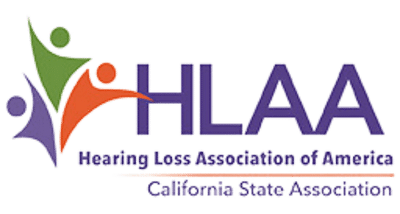 By John Waldo
By John Waldo
The U.S. Supreme Court will soon hear argument on a case called Cummings v. Premier Rehabilitation. The decision could significantly impact the interests of deaf and hard of hearing (D/HoH) people. A Deaf woman in Texas needed physical therapy but when she asked for interpreters, the facility refused, not once but twice. So she filed a lawsuit.
The center’s refusal to provide interpreters is clearly against the law. The Americans with Disabilities Act (ADA) requires virtually all businesses open to the public to provide and pay for “effective communication.” Another law, Section 504 of the Rehabilitation Act, requires businesses that receive Federal funds, including any health-care provider that accepts Medicare or Medicaid payments, to do the same. With that double-barreled mandate, you’d think her lawsuit would be an easy success.
That was not so because of quirks in the two laws. The ADA does not permit private individuals to recover damages, only to get an order, an injunction, telling the business do it right next time. But sometimes, there won’t be a next time. Examples are when somebody is travelling far from home or when, as in this case, the patient has fully recovered and no longer requires the provider’s services. And courts won’t decide an issue in the abstract; unless the plaintiff is asking for a remedy that the court has the power to grant, it’s “Case dismissed.”
What about 504? It does permit a private party to recover damages. The plaintiff didn’t lose any money and wasn’t physically injured, so she sought damages for “emotional distress,” basically, the kind of feelings we all have if we are told we’re not wanted.
The lower court said no to that as well. The rationale for allowing damages in a 504 case is that a facility that accepts Federal money has to play by certain rules. The court said, sensibly, that the facility has to know what those rules are. But it went on to say that the facility probably didn’t know that accepting Federal money would make it liable for hurt feelings. And if the facility isn’t liable for emotional distress damages, there’s nothing a court can do. Again, “Case dismissed.”
That decision runs counter to a large volume of case law involving all manner of civil rights. While emotional distress may not seem like a big deal, allowing damages for that essentially provides a way for courts to deal with cases where people are wrongly excluded. The fundamental purpose isn’t so much to compensate the person excluded as to deter the businesses from excluding them. Our concern is that if this case stands up, it can permit certain businesses in certain situations to flagrantly violate the law, as the business in this case did, and sustain no consequences whatsoever.
This latter purpose is the case the plaintiff took to the Supreme Court which decides what it wants to decide and takes very few of the cases presented to it. But it did take this case, and much of the time, the Supreme Court takes a case to tell the lower courts they were wrong, not to tell them “Good job.” So we feel good about this case. ALDA (The Association of Late Deafened Adults) joined a friend-of-the-court brief urging the Supreme Court to permit those kinds of damages, and in another encouraging sign, the Department of Justice also filed a brief urging that outcome.
Because the decisions being reviewed run contrary to what almost all courts have considered settled law, striking down those decisions wouldn’t directly help D/HoH people. However, affirming those earlier decisions and essentially turning them into a nationwide rule would be a real concern. Oral argument to the Court is scheduled for Nov. 30, 2021



